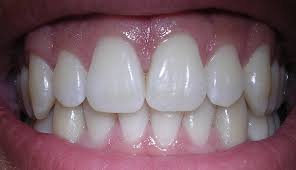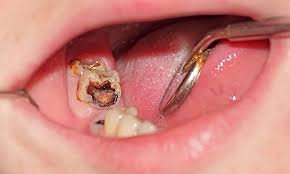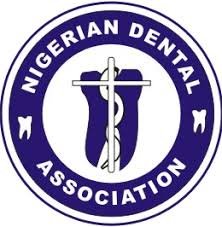Lately, severe tooth aches have sent many to their early graves. Hundreds of thousands are at risk of this dental disease. Ordinarily seen as a common pain in the incisor and ignored pains in the tooth is becoming a dreaded threat to life. Sudden deaths resulting from the aches are increasing bringing to shocking realization that urgent actions are required to address the menace. Juliet Jacob takes a holistic view of the problem, in this special report, noting that it is a silent epidemic in the Nigeria’s oral health system.
Dental Care in Nigeria Leaves a Lot to be desired
Oral health plays a vital role in overall well-being, yet it is frequently disregarded. Experts highlight that a person’s oral condition often mirrors their general health. However, in Nigeria, dental care is not a priority for many, with individuals often seeking treatment only when the pain becomes unbearable. This neglect can lead to severe, and in some cases, life-threatening consequences.

Despite globally efforts to incorporate oral health into universal healthcare, Nigeria still operates without a revised national oral health policy. As a result, millions remain at risk of preventable dental diseases. This special report explores the current state of oral health in Nigeria, the structural challenges faced, and the pressing need for a unified strategy to address these issues.
The Widespread Burden of Oral Diseases
According to the World Health Organization (WHO), oral diseases impact nearly 3.5 billion people globally, with dental caries (tooth decay) being the most prevalent condition. In Nigeria, estimates indicate that between 6% and 23% of the population experiences dental caries, while periodontal diseases affect between 15% and 58% of individuals aged 15 and above. However, these statistics are based on the outdated National Oral Health Policy of 2012, making it difficult to determine the current prevalence with accuracy.
Poor oral health is not just a matter of decayed teeth. Research has shown that oral diseases are linked to other non-communicable diseases (NCDs) such as diabetes, cardiovascular diseases, and even cancer. The mouth serves as a gateway to the body, and conditions like anaemia, leukaemia, osteoporosis, and HIV often manifest first through oral symptoms. This connection underscores the urgent need for improved dental care in Nigeria.
Why Nigerians Ignore Oral Health
Many Nigerians prioritize daily tooth brushing but tend to neglect overall oral health, often viewing dental check-ups as unnecessary unless a severe problem arises. Even when faced with toothaches, some choose pain relievers over visiting a dentist. This widespread disregard is influenced by financial constraints, cultural beliefs, and limited awareness of the importance of professional dental care.
During an interview with Africa Health Report (AHR), 27-year-old Daniel, a resident of Abuja, admitted candidly, “I don’t go to the dentist, let me be honest with you. The last time I had a toothache, I just used painkillers that was it.”

For Daniel, cost is a major barrier. “I can barely afford my rent and other expenses. A dentist? That’s a luxury,” he explained.
Similarly, 21-year-old Esther admitted, “I have never been to the dentist not even once. I rely on home remedies, drink warm water, or chew cloves.”
Their confessions reflect a much larger reality an alarming level of apathy toward dental care in the country. Many Nigerians, regardless of age or social status, neglect their oral health, often due to financial constraints, lack of awareness, or fear of dental procedures.
For Daniel, cost is a major barrier. “I can barely afford my rent and business expenses. A dentist? That’s a luxury,” he explained. Esther, on the other hand, admitted that she had never considered it necessary. “No one in my family has ever talked about going to the dentist. If you have a toothache, you use home remedies, drink warm water, or chew cloves.”

The problem extends beyond personal choices. The high cost of dental care, inadequate access to affordable clinics, and cultural beliefs all contribute to the neglect of oral health. In rural areas, many people have never even seen a dentist, relying instead on traditional methods to treat dental issues.
The Unfinished Business of Nigeria’s Oral Health Policy
Nigeria’s most recent official oral health policy lapsed in 2015. In 2019, the Federal Ministry of Health initiated efforts to formulate a new National Oral Health Policy, with a planned release date of June 2020. This policy aimed to tackle the increasing prevalence of oral diseases and incorporate dental services into primary healthcare. However, there has been limited public information regarding its implementation.

In 2021, the World Health Assembly (WHA) passed a resolution emphasizing the importance of oral health, encouraging nations to incorporate dental care into their healthcare systems from an early age. However, Nigeria has yet to establish a long-term, effective strategy for integrating oral healthcare into its national health framework.
Tragic Consequences of Neglected Oral Health
Several recent deaths have underscored the severe risks associated with untreated dental infections.
The Case of Mike Williams
Former NFL player Mike Williams tragically passed away in September 2023 due to brain infections caused by untreated dental issues. Initially hospitalized after a construction accident, he later succumbed to bacterial sepsis, which stemmed from multiple dental abscesses. His case serves as a stark reminder that oral infections can rapidly escalate into life-threatening conditions.
The Death of Nollywood Actor Fred Ezimadu
Nigerian actor Fred Ezimadu, popularly known as Big Fredo, also lost his life to what began as a simple toothache. Reports indicate that he was admitted to a hospital after complaining of severe pain but died shortly after. His sudden passing highlights how dental conditions, if left untreated, can lead to fatal complications.
The Shocking Demise of Journalist Lawrence Bilal Audu
In February 2025, respected journalist Lawrence Bilal Audu died under distressing circumstances. Days before his passing, he excused himself from a dinner due to an excruciating toothache. The following morning, he was found lifeless in his hotel room. His untimely death shocked colleagues and the media industry, raising further concerns about the dangers of untreated oral infections.

The Hidden Links Between Oral Health and Systemic Diseases
Several studies have established a strong connection between poor oral health and serious medical conditions. Research published in the Journal of Dental Research found that untreated tooth infections increase the risk of heart disease by nearly three times. Gum disease has also been linked to diabetes, Alzheimer’s disease, and complications during pregnancy.
“Infections occur when decay reaches the center of the tooth, allowing bacteria to enter the bloodstream,” explained Dr. Nigel Carter, CEO of the Oral Health Foundation. “This can lead to severe conditions like sepsis and cardiovascular disease.”
Despite these well-documented risks, oral healthcare remains inaccessible for many Nigerians. Treatment for conditions like dental abscesses and periodontitis is often expensive, and most public healthcare plans do not cover routine dental care.
Barriers to Dental Care in Nigeria
Several factors contribute to the poor state of oral healthcare in Nigeria:
Lack of Awareness: Many Nigerians are unaware of the importance of regular dental checkups.
High Cost of Treatment: Dental care is expensive and often not included in universal health coverage.
Limited Access to Services: There are insufficient dental clinics and professionals, particularly in rural areas.
Cultural Beliefs: Some Nigerians rely on traditional remedies instead of professional treatment.
The Urgent Need for a New Oral Health Strategy
For Nigeria to improve oral health outcomes, several key actions must be taken: Develop and Implement a New National Oral Health Policy: The government must release and enforce the long-overdue policy to address oral health challenges effectively, Increase Public Awareness Campaigns: Nigerians need education on the importance of oral health and its links to overall well-being, Expand Access to Affordable Dental Care: The inclusion of dental services in universal health coverage would ensure more people receive timely treatment, Train More Dental Professionals: There is a need to strengthen the workforce by increasing the number of trained dentists and hygienists, Integrate Oral Health into Primary Healthcare: Dental checkups should become routine in public health centers to detect and treat conditions early.
Nigeria must act swiftly to reform its oral healthcare system. A national oral health policy, combined with increased public awareness, better access to treatment, and integration into primary healthcare, can prevent countless unnecessary deaths. The time for action is now—before more lives are lost to preventable oral diseases.
Expert Insights on Dental Hygiene
A consultant oral and maxillofacial surgeon, Dr. Olawale Adamson, explains that toothaches can lead to severe complications if left untreated. In cases where an abscess forms, the infection can spread to the face and even reach the brain. Additionally, the jawbones may become weak and fragile, potentially leading to tooth loss, osteomyelitis, or even fatal consequences.
He identifies poor diet and inadequate oral hygiene as primary risk factors for toothache. Consuming sugary foods, especially carbohydrate-rich meals, increases the likelihood of developing dental issues. Furthermore, maintaining good oral hygiene, such as brushing twice daily with fluoride toothpaste, is crucial for preventing tooth decay and related problems.
Dr. Adamson discourages the use of home remedies for dental pain, as they provide only temporary relief and fail to address the underlying cause. One particularly harmful myth is the application of petrol to a painful tooth. He emphasizes that petrol is a chemical that offers no benefits for toothache relief and can actually be harmful.
He warns against using abrasive substances in an attempt to eliminate dental pain, as they can worsen the condition rather than provide a cure. The appropriate treatment for a toothache depends on its root cause, which should be diagnosed and managed by a dental professional.
Dr. Morenike Oluwatoyin Folayan Ukpong, a medical scientist specializing in paediatric dentistry, Professor of Pediatric Dentistry at Obafemi Awolowo University (OAU).

Speaking with African Health Report (AHR), Dr. Ukpong emphasized the importance of good dental hygiene, highlighting simple practices such as brushing twice daily and flossing regularly to prevent dental issues. She also stressed that maintaining oral health goes beyond brushing, noting that diet choices, stress management, and avoiding tobacco products play a crucial role in overall dental well-being.
Dr. Ukpong cautioned against the use of wooden toothpicks to remove food particles from between the teeth, warning that this practice can lead to the formation of pockets and dental caries. He explained, “Using toothpicks to dislodge food trapped between the teeth indicates the presence of pockets and cavities. These holes in the teeth pose significant concerns, affecting growth, development, and psychological well-being.”
She also emphasized the dangers of dental plaque, warning that if not removed, it can harm teeth and contribute to various systemic disorders. According to DentalCare.com, plaque is “a sticky film that coats the teeth and contains bacteria.” An advisory on the site cautions that if plaque is not removed while it is still soft, it hardens and becomes difficult to eliminate. The advisory further warns that “dental plaque can damage teeth, leading to tooth decay or even tooth loss.”
Dr Ukong agrees, adding that “plaque is also associated with a number of systemic disorders such as low birth weight and preterm births for pregnant women, it increases the risk for diabetes mellitus and also the risk for cardiovascular diseases.”
She also cautioned that failing to remove plaque can lead to tooth decay, tooth loss, and even serious systemic conditions such as diabetes, cardiovascular disease, and Alzheimer’s. Her insights highlight the significant connection between oral health and overall well-being, underscoring the need to maintain good dental hygiene.
“Researchers have also linked plaque to various health issues, including low sperm counts, Alzheimer’s disease, and arthritis. These connections stem from the inflammation that plaque triggers in the mouth, which can spread throughout the body. ‘I can personally attest to the link between arthritis and oral inflammation based on my own experience,’ she stated.”
The doctor observed that dental problems are widespread in Nigeria, largely due to poor hygiene. However, significant improvements can be achieved through dietary changes, such as reducing the intake of refined carbohydrates—such as cakes, biscuits, sweets, and sodas during meals. The risk of tooth decay increases substantially when these foods are consumed between meals, especially three or more times a day.
The dentist advised, “If you participate in contact sports or grind your teeth at night, wearing a mouthguard can help prevent injury or damage. Additionally, managing stress is crucial, as it can contribute to teeth grinding (bruxism), leading to dental issues. Practicing stress-reduction techniques can help protect your oral health.”
She emphasized the importance of adopting healthy oral habits, including flossing once daily to clean between the teeth, brushing the tongue daily, and avoiding tobacco products—both smoking and smokeless forms—to maintain good dental health.
Regular dental visits for preventive care such as teeth cleanings, exams, and early treatment of cavities or gum disease could have spared Williams from serious dental complications. While some oral health problems, like severe toothaches, abscesses, or bleeding gums, may seem to appear suddenly, they are often the result of underlying issues that have been developing unnoticed. By the time these symptoms become visible or painful, the condition has likely reached a critical stage, requiring urgent treatment to prevent severe pain, further complications, or even life-threatening consequences.
Conclusion
Oral health is not just about having a bright smile it is a critical aspect of overall health that can have life-or-death consequences. The tragic deaths of individuals like Mike Williams, Fred Ezimadu, and Lawrence Bilal Audu serve as sobering reminders of what happens when dental issues are ignored.



